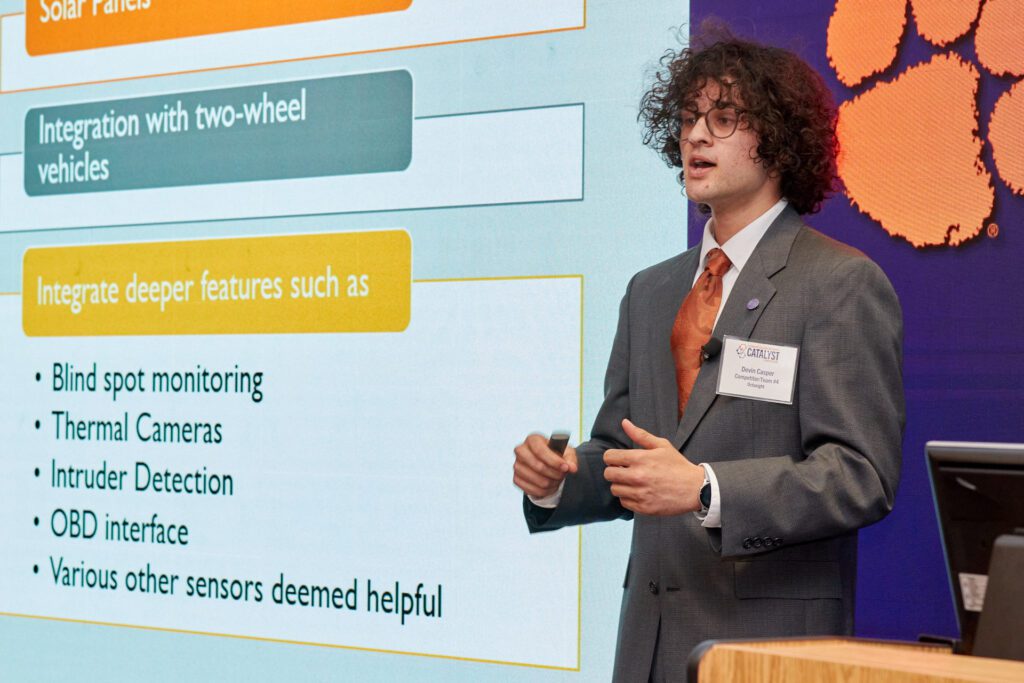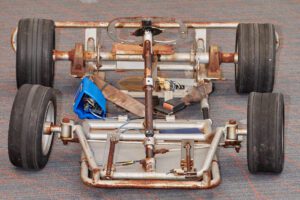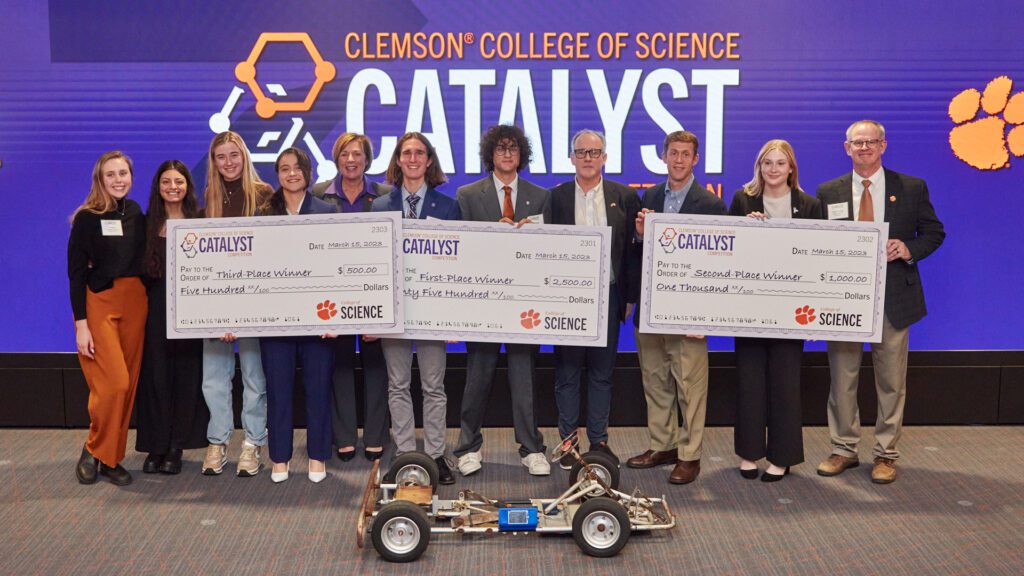When Clemson University first-year student Devin Casper had a wreck with his brother in the car, it scared him.
Casper’s 2010 Suburu WRX STi wasn’t equipped with a computer-assisted driver notification system commonly found in vehicles today that alerts drivers if they are about to hit something.
“We were lucky. Neither of us was hurt. But it got me thinking of ways to improve the safety of older cars,” said Casper, who is majoring in mechanical and computer engineering.
He and his roommate Soren Spina, a first-year biochemistry student, turned those concerns into the winning idea in the College of Science’s Catalyst Competition. The entrepreneurial challenge culminated on March 15 when student teams pitched their innovative ideas to a panel of judges in the Watt Family Innovation Center.

The pair won $2,500 for their Octasight Automotive Safety System, which is a wireless, interactive hub-based system of sensors that alerts drivers of obstacles before they hit them. In addition to the monetary prize, the winners get the chance to compete in the University-wide
Spiro Institute’s University Pitch Smackdown on April 14.
“We believe this product can go to market,” Spina said.
Casper told the judges that basic computer-assisted driver notification systems started to appear in higher-end vehicles in 2015 and in economy cars in 2017.
Older model cars
He said 127 million of the 211 million cars on the road today are models older than 2014.

“Sixty percent of Americans are driving without these features,” he said. They said the primary audience for their product would be drivers of cars without sensor systems and parents of young drivers who want that extra layer of protection for their children.
Previous attempts to put computer-assisted driver notification systems in cars that weren’t factory-equipped required vehicular modification, were difficult to install, had limited features, were wired and were not reliable.
The pair came up with Octasight, a wireless, interactive hub-based system of eight lidar sensors — one on each corner and side face of the vehicle. The device has an integrated charging dock. The main hub displays data and provides visual and tactile alerts to the driver.
Spina said other features could be integrated into Octasight in the future, including blind spot monitoring, thermal cameras and intruder detection.
Further market study
“We’re going to continue to work on the product, even tomorrow. We’ll do more prototypes and further market research. We’ll be speaking to more experts,” he said. “We have a ton of ideas to expand the product and make it more versatile. We’re looking forward to seeing where it can go.”

Second place went to Susan Davis, a sophomore biological sciences student, for SafeStraws, which could detect substances in drinks, including common date rape drugs or even the amount of sugar. The straw would use litmus and pH paper and change colors if something was detected.
Sabrina Melendez-Rosales, a senior majoring in biology and genetics, won third place for Diaband, a skin-like product that would use Hirudin, a compound found in leech saliva, to promote wound healing in diabetics by helping to restore blood flow to the injured area.
“College Connect” by Liza Moise, a junior biology major; Elizabeth White, a junior language and international health major; and Simone Boles, an international health major; received honorable mention. “College Connect” is an online platform that provides college students with a place to share their mental health challenges and emotions anonymously.
The Catalyst Competition, which launched in 2021, is a two-semester program in which participating student teams receive support through entrepreneurial-related educational workshops, professional consultants and faculty advisers.
The College of Science pursues excellence in scientific discovery, learning, and engagement that is both locally relevant and globally impactful. The life, physical and mathematical sciences converge to tackle some of tomorrow’s scientific challenges, and our faculty are preparing the next generation of leading scientists. The College of Science offers high-impact transformational experiences such as research, internships and study abroad to help prepare our graduates for top industries, graduate programs and health professions. clemson.edu/science
Get in touch and we will connect you with the author or another expert.
Or email us at news@clemson.edu
